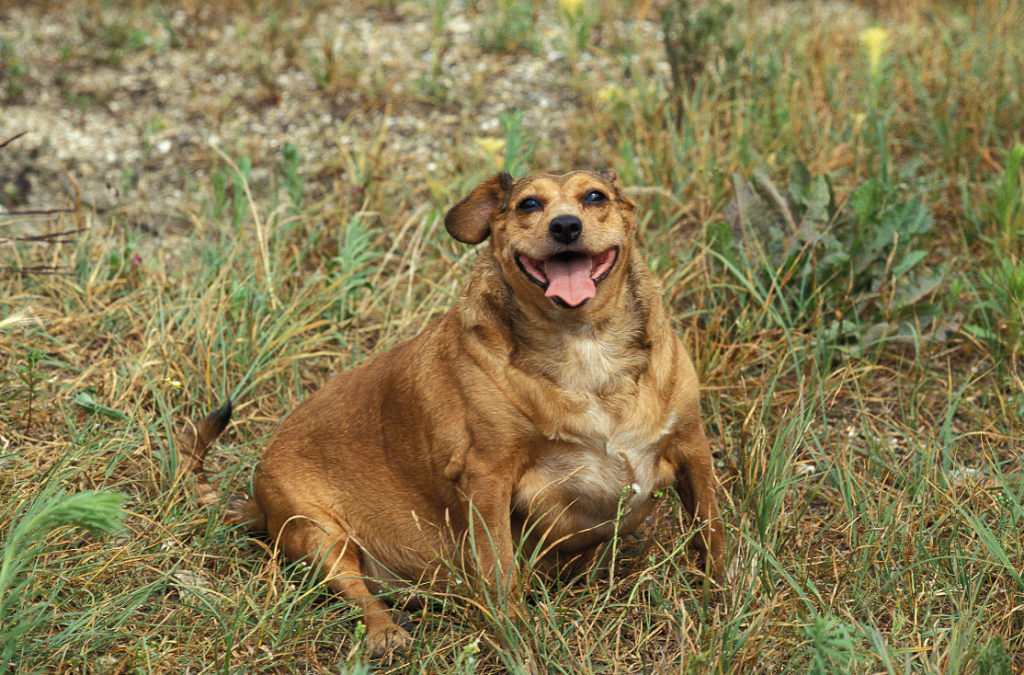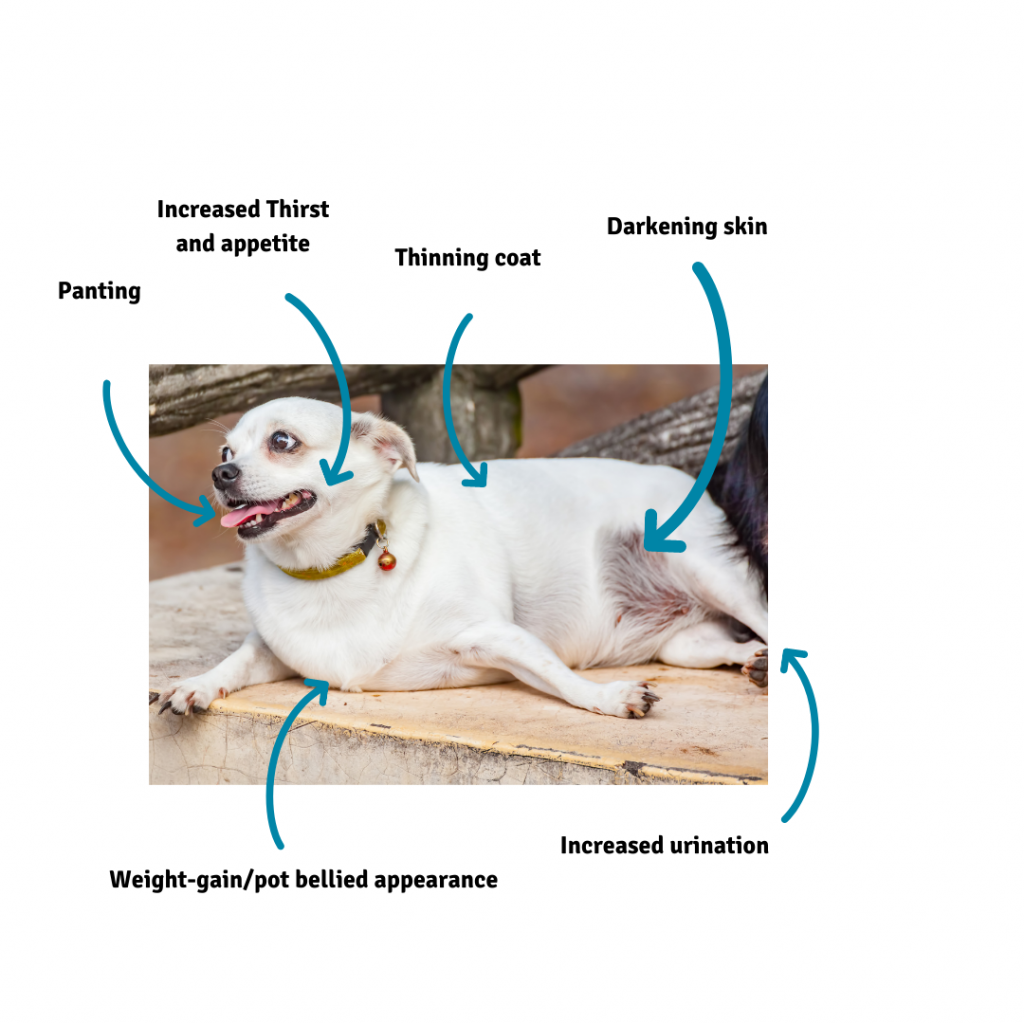
It is the worst feeling, walking into the vet surgery, and feeling like your vet is judging you because your pet is overweight. We often have clients coming in cringing, and expecting to be berated over their pet’s weight issues. Weight can be extremely important when we talk about keeping a pet healthy, so we often will discuss it with you if it is a problem, but we really aren’t trying to make you feel guilty! Sometimes, we have to ask those tricky questions just to work out what is going on.
But before you beat yourself up, it is worth considering that there are a few medical reasons for weight gain. This is why we ask the questions – we need to rule these out! For more information about non-medical reasons for weight gain, CLICK HERE.
1. Cushing’s Disease (Hyperadrenocorticism)
This is probably one of the most common issues we see in older, smaller dogs. Cushing’s disease is when the adrenal gland produces too much cortisol. Cortisol is the hormone naturally produced when the pituitary gland in the brain releases a signal to the adrenal gland, usually in response to stress. For more information on “What is Cushing’s disease”, CLICK HERE. For information on how to test for Cushing’s disease, CLICK HERE. (Don’t worry, there are links on both of those pages to the other page so you don’t get lost)

2. Hypothyroidism
Hypothyroidism is common in dogs, but uncommon in cats. Just like humans, our pet’s thyroid helps to regulate their metabolism (amongst other things). When they does not produce enough thyroid hormone, your pet can start to gain weight. In addition this can also lead to hair thinning – particularly on the tail.
3. Some medications
Some medications can cause pets to gain weight, or to have trouble losing weight. One of the most common causes of this is long term corticosteroid use. You may hear this drug referred to as a “steroid” or a “cortisone”, or “pred” (prednisolone) or “dex” (dexamethasone). It used to be our main treatment for allergies, and is still one of the cheapest medications available for us to use. It is also used in feline asthma, some chemotherapy plans, some auto-immune conditions. While it is an extremely useful medication, we need to make sure it is used appropriately and the benefits outweigh the side effects.
4. Some Tumours
Some tumours can hide in your dog or cats abdomen and grow for a long time without being detected. Sometimes the firs sign we notice is when we feel your pet’s tummy at their annual exam. The most common of these is a tumour on the spleen – it won’t even show up on a blood test. Sometimes this will mean your pet’s tummy grows bigger – but the rest of them stays teh same, or even loses weight.
This is why we feel your pet’s tummy at every examination. Even then they can be easy to miss, so after a certain age we may even start suggesting ultrasounds as a part of their routine health check. If you notice your pet’s tummy feeling more lumpy or larger than usual, please make an appointment to see your vet – we can investigate it for you. The sooner these tumours are found, the better chance we have of treating them. Often we can remove tumours before they spread.
5. Ascites
Ascites is a word we use to describe fluid in the abdomen. It causes a swollen, distended abdomen, but rarely causes weight gain anywhere else. This can be caused by heart disease, liver disease, kidney disease, low protein levels and even parasites! Often young puppies have ascites because they just haven’t got enough protein in their system yet!
There are many non-medical reasons your pet may gain weight too. Part 2 of “Why is my pet gaining weight?” will be updated soon.

